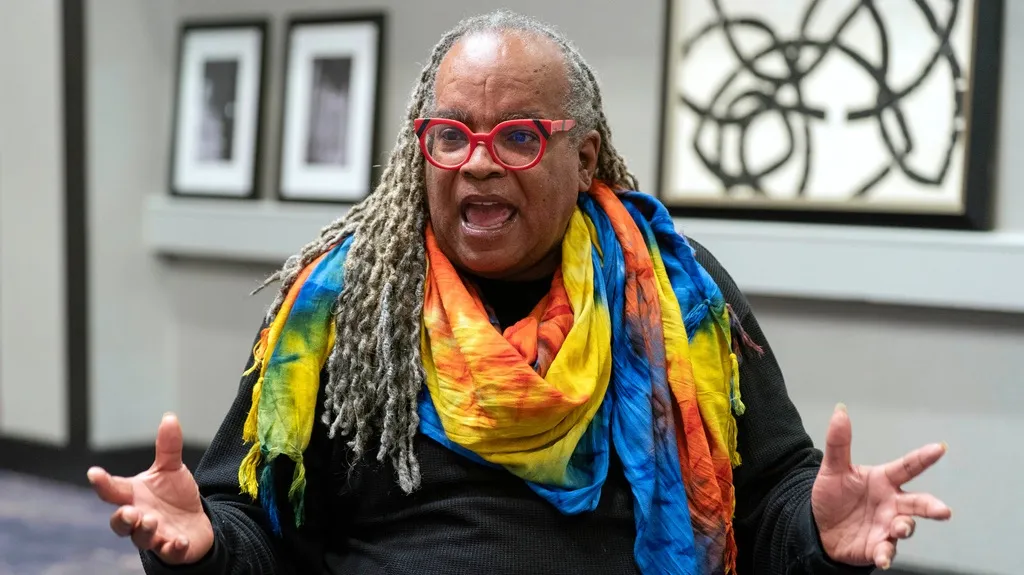February 24, 2014
2013 Law an Issue in Kansas Gay Marriage Debate
Jason St. Amand READ TIME: 4 MIN.
A law enacted last year that prevents Kansas' government agencies from infringing on residents' religious liberties has become an issue in the Legislature's current debate on how best to proceed in case federal courts invalidate the state's gay marriage ban.
Kansas Senate President Susan Wagle said the 2013 law is a reason for her and other majority Republicans to avoid taking up a House-passed anti-gay marriage bill that prohibits administrative fines or anti-discrimination lawsuits against people, groups or businesses refusing for religious reasons to provide goods, services, accommodations or employment benefits to gay couples. Senate Judiciary Committee Chairman Jeff King said informational hearings next month will deal with whether the House bill's promised protections already are provided by last year's law.
The debate highlights an uncertain legal climate for Kansas' constitutional ban on same-sex marriages, since federal judges recently struck down bans in Utah and Oklahoma. Kansas falls under the same federal appeals court as those two states.
Backers of the House bill are skeptical the 2013 law provides adequate legal protections for churches, bakers, florists and photographers who don't want anything to do with gay weddings. But the measure inspired a strong backlash from both legislators and businesses because it applied to more than wedding ceremonies, with critics suggesting it would encourage widespread discrimination.
"We need to analyze what's in place for Kansans to protect religious freedom," Wagle said during an interview last week. "And we want to see if there are any holes in that."
Some House members already had questioned whether a new law was necessary after last year's, which says government shall not "substantially burden" someone's "exercise of religion" unless it can show that doing so furthers a "compelling" interest and the burden is the least restrictive way.
The bill approved by the House on Feb. 12 would ban fines or lawsuits when individuals, groups and businesses cite religious beliefs in refusing to provide goods, services, accommodations and employment benefits related to a marriage, civil union, domestic partnership or a celebration of such relationships. It also protects religiously affiliated adoption agencies that refuse to place children with gay couples.
Critics of the bill zeroed in on language extending protections to individual workers or government employees - which would have allowed them, for religious reasons, to decide against providing lawful services, though their employers would have to find a work-around if it were not an "undue burden."
For example, the bill's opponents argued, a clerk could refuse to issue a marriage license even if same-sex marriages were legal, and individual police officers could refuse to intervene in domestic disputes between gay and lesbian couples. Rep. Charles Macheers, a conservative Shawnee Republican and attorney advocating the bill, called such examples "far-fetched."
Wagle has said the Senate will not take up the measure and King declared it "dead," though both promised hearings to discuss the legal landscape. But The Wichita Eagle reported that a tea-party group headquartered in that city has started an email campaign to get the House bill resurrected.
Tom Witt, executive director of Equality Kansas, the state's leading gay rights group, said Kansans didn't need last year's law or a new one to avoid fines or lawsuits because state anti-discrimination laws don't cover sexual orientation or gender identity.
Even a federal court ruling legalizing same-sex marriage would not help gays and lesbians facing discrimination, he said.
"The discrimination that's most typical is in employment and, sometimes it's in housing," Witt said. "They have no recourse."
House Judiciary Committee Chairman Lance Kinzer, an Olathe Republican, said passing a bill this year would be akin to enacting religious liberty accommodations for those against gay marriage in states where the unions are legal.
"It makes sense to say, 'What kind of legislation would we have passed had we legislatively enacted same-sex marriage?' and, 'Let's look at doing that in advance of a ruling that would impose it judicially,'" Kinzer said.
Last year's law said that if people believed government was limiting their religious liberties, they could contest the government's actions in court. The law mentions the state constitution's ban on same-sex marriage in passing.
Supporters said this year's bill is focused on protecting gay-marriage opponents from being sued or punished for acting in line with their religious beliefs. It also would allow administrative complaints to be transferred to district courts and would give courts two months to settle any case, with limits on what evidence can be considered.
"It would immediately be dealt with instead of just winding through the court for, what is a lot of times, a number of years," said Rep. Jan Pauls, a Hutchinson Democrat and former judge who opposes same-sex marriage and other gay-rights measures.
King said last week that the Senate Judiciary Committee hearings will be an opportunity for both supporters and critics of the House bill to have national legal experts testify.



